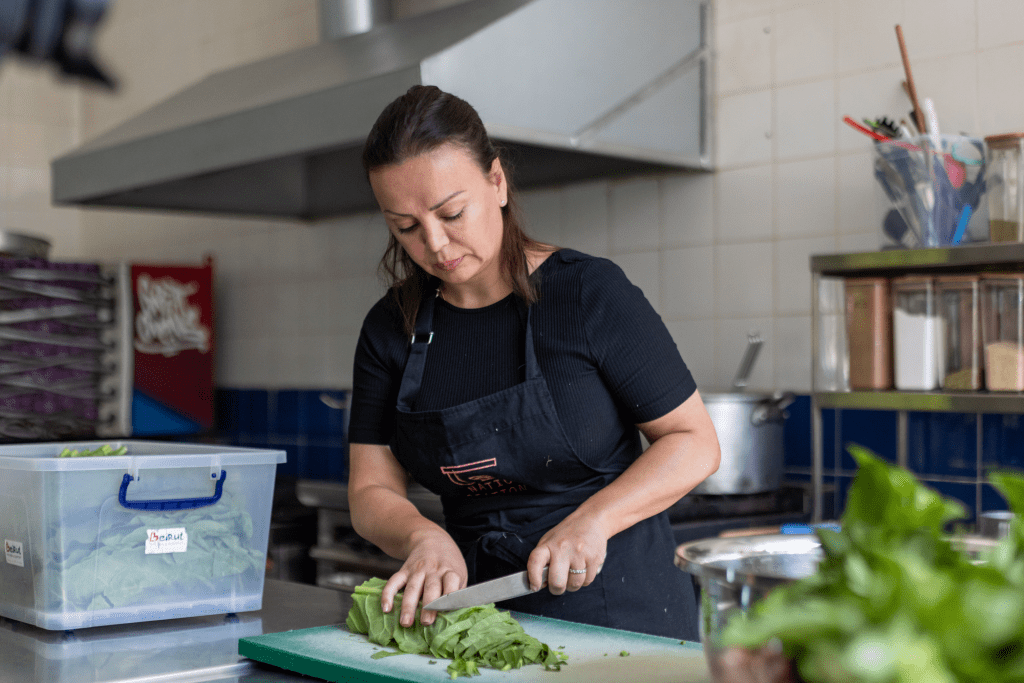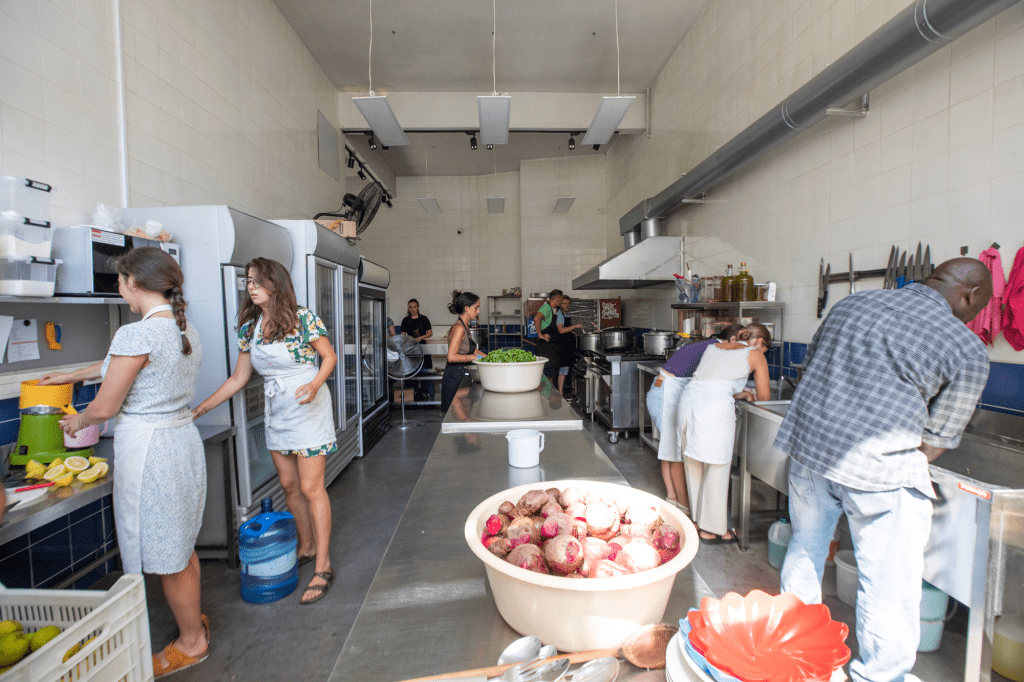Josephine: Rising from the Rubble of the Explosion in Beirut
Lebanese woman Josephine Abou Abdo co-founded “Nation Station” in response to the catastrophic explosion in the port of Beirut in 2020. Together with four others, she spearheaded this community-led initiative in an abandoned petrol station. After the disaster, volunteers came together to provide urgent aid and demonstrate the strength of the community in times of crisis. They provided medical care, shelter and food, showing how collective action can bring hope and resilience.

Gathering Strength: Starting Nation-Station Amidst Beirut’s Devastation
Josephine Abu Abdo, a resident of Beirut, stood amidst the ruins of her city after the explosion on 4 August 2020. Her home was damaged and the weight of the destruction still hangs in the air. But instead of giving in to despair, Josephine felt the urge to bring her community together. She gathered her neighbours in a shared apartment and turned their collective pain into action.
“There was practically nothing left,” says Josephine. “Just sitting at home or even cleaning our house felt like a burden. Then we gathered all the residents of the building in a flat and discussed how we could help each other instead of staying at home and isolating ourselves.”
In the first two weeks, they transformed an abandoned train station into a center of community support. A diverse group of residents pooled their skills and resources to help their struggling community. A farmer among the founders provided greens, others brought water and ingredients to make saj bread and began distributing it. They were soon joined by over 100 volunteers, united by the vision of non-political, non-religious aid. Together, they distributed food, cleaned homes and helped those in need.
“Out of the need to distract ourselves, we decided to help,” explains Josephine. What began as a therapeutic response to a tragedy laid the foundations for something much bigger, “Nation Station.”

From Crisis to Community: The Evolution of Nation Station’s Work
“Nation Station” soon developed into a citizens’ initiative supporting the affected community. This grassroots movement began immediately after and in response to the explosion as a temporary measure, but has since evolved into a community development project that emphasises self-sufficiency and skills improvement.
“We have been here for three years now to help and empower the community,” says Josephine. The focus has shifted to sustainable livelihoods and the initiative has pioneered a “community kitchen” that not only distributes food but also creates employment opportunities for locals. Beyond providing food, the kitchen became a catalyst for change by providing employment opportunities for members of the local community. The profits generated were reinvested into the community to ensure a continuous cycle of support.
Nation Station became a place to showcase talent and produce, hosting events such as farmers markets and cine clubs. Josephine and her team recognised the transformative power of food as a means of communication and connection.
“At Nation Station, we consistently use food as a means of communication. If you want to communicate with someone, it’s a good idea to offer them something to eat,” Josephine explains. “Effective communication and interaction can only happen when the basic need of food is met, which allows for a real connection to each other.”
Psychological support is also central to the Nation Station. “Anyone who wants to talk or needs counseling can come to our clinic for free. If people want to share their experiences with challenges, they have someone to listen to them.”
Despite the difficult economic situation in Lebanon, Nation Station continues to be an important lifeline for the community. Josephine notes, “Even after three years, people continue to ask us for food. This shows that the need for help is not decreasing, but increasing.”

Nation Station’s Amplified Impact Through EU Support
As the scope and ambitions of Nation Station grew, international support became crucial. The initiative benefited from the support of the “Social Entrepreneurship Ecosystem (SEE) Change” project, implemented by Oxfam and funded by the European Union through the EU Regional Trust Fund in Response to the Syrian Crisis (EUTF Syria) – the Madad Fund.
The SEE Change project aims to improve the social economy in the Bekaa and Mount Lebanon regions. It empowered community members to actively contribute to identifying, implementing and monitoring the social impact of social start-up models. The SEE Change supported social enterprises and organisations to increase their local impact in terms of social and economic stability.
Through the EUTF Syria, the EU is at the forefront of the international response to the Syria crisis: helping to meet the critical needs of millions of Syrian refugees and their host communities.
Josephine and her team at Nation Station became part of this action by aligning their grassroots efforts with the broader goals of SEE Change. Through systematic support, the initiative became a beacon for social entrepreneurship and fostered positive change in the wake of tragedy.
Josephine Abou Abdo and her team have not only revitalised an urban space by transforming a petrol station into a kitchen that offers assistance in the form of food, water, livelihoods and psychological support, but they have also transformed the Nation Station into a safe space for the many people struggling with adversity and trauma. Beyond its practical functions, Nation Station has become a symbol of community resilience and strength.



























 Syria
Syria 


